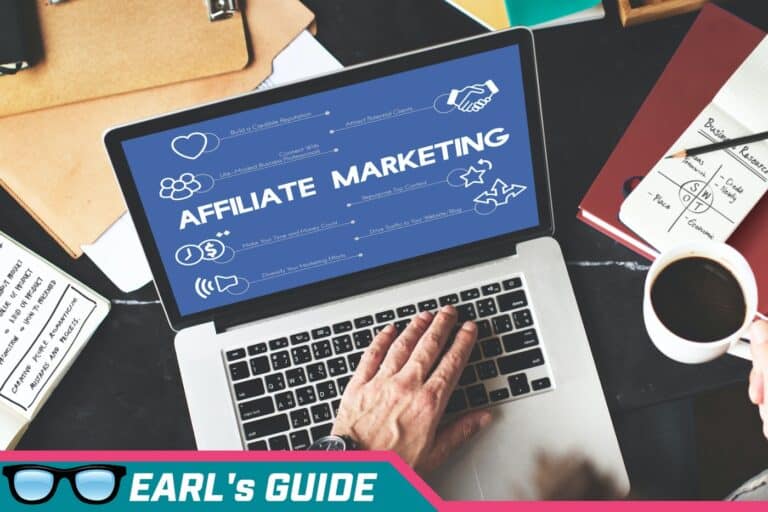Are you a business owner or marketing manager looking to increase your sales in 2023? Have you considered implementing an affiliate marketing program?
Why Businesses Should Consider Affiliate Marketing
Affiliate marketing is a powerful tool for businesses looking to expand their reach and increase sales. It involves partnering with individuals or organizations (affiliates) who promote your products or services in exchange for a commission on any resulting sales. This article will cover the basics of affiliate marketing, including how it works, its benefits, and how you can get started.
How Affiliate Marketing Works
At its core, affiliate marketing is simple: affiliates promote your products or services, and you pay them a commission for any resulting sales. There are a few different ways that affiliates can promote your products or services, including through:
- Blog posts: Affiliates can write about your products or services on their blog and include a link to your website. The affiliate earns a commission when readers click on the link and make a purchase.
- Social media posts: Affiliates can share your products or services on social media platforms like Facebook, Twitter, and Instagram and include a link to your website. Again, the affiliate earns a commission when readers click on the link and make a purchase; the affiliate earns a commission.
- Email newsletters: Affiliates can promote your products or services in their email newsletters and include a link to your website. The affiliate earns a commission when subscribers click on the link and make a purchase.
- Websites: Affiliates can create a dedicated webpage on their niche website that promotes your products or services and include a link to your website. The affiliate earns a commission when visitors click on the link and make a purchase.
Affiliates typically use special tracking links that include a unique code. This code allows the affiliate to be credited for any resulting sales.
Benefits of Affiliate Marketing
There are many benefits to using affiliate marketing for your business, including the following:
- Cost-effective: Affiliate marketing is a cost-effective way to reach a wider audience. You only pay affiliates a commission when they generate a sale, so you don’t have to spend money upfront on advertising.
- Increased exposure: Partnering with affiliates can help you reach a new audience you may have yet to be able to reach on your own.
- Passive income: As an affiliate, you can earn passive income by promoting products or services that you believe in. You can do this on your own time without worrying about running a business’s day-to-day tasks.
- Low risk: Since affiliates only earn a commission when they generate a sale, there is minimal risk involved for your business.
Getting Started with Affiliate Marketing
If you’re interested in starting an affiliate program for your business, here are the steps you’ll need to follow:
- Determine your goals: Before you start, you must know what you want to achieve with your affiliate program. Determine your goals and align them with your overall business objectives.
- Choose your affiliates: You’ll want to select affiliates who are a good fit for your business and have a track record of success. Look for affiliates with a loyal following and a strong presence in your industry.
- Set your terms: Determine how you will pay your affiliates, including the commission rate and the terms of the agreement. You’ll also want to decide on any rules or guidelines that affiliates must follow, such as not using spammy tactics to promote your products.
- Create marketing materials: Provide your affiliates with marketing materials such as banner ads, text links, and product images to help them promote your products or services.
- Launch your program
- Track and measure results: Once your affiliate program is up and running, it’s important to track and measure the results. This will help you determine what is and isn’t working, and allow you to make any necessary adjustments.
- Communicate with affiliates: Keep in touch with your affiliates to provide them with updates, new marketing materials, and any other information they may need. This will help build a strong relationship and ensure that they are motivated to promote your products or services.
Tips for Successful Affiliate Marketing
Here are a few tips to help you get the most out of your affiliate marketing program:
- Offer a competitive commission rate: Affiliates are more likely to promote your products or services if they feel they are fairly compensated. Make sure to offer a competitive commission rate that reflects the value of your products or services.
- Provide high-quality marketing materials: Make sure to provide your affiliates with high-quality marketing materials that are easy to use and that accurately represent your products or services.
- Choose affiliates carefully: It’s vital to choose affiliates who are a good fit for your business and have a track record of success. Look for affiliates who are reputable and who have a loyal following.
- Communicate with affiliates regularly: Keep in touch with your affiliates to provide them with updates, new marketing materials, and any other information they may need. This will help build a strong relationship and ensure that they are motivated to promote your products or services.
- Monitor and adjust your program as needed: It’s essential to track and measure the results of your affiliate program and make any necessary adjustments. This will help you optimize your program and get the most out of it.
Affiliate marketing stands as a dynamic and cost-effective strategy for businesses aiming to broaden their market presence and elevate their sales figures. This method hinges on a symbiotic relationship between a business and its affiliates, where affiliates are incentivized through commissions to promote the business’s products or services. This approach not only aids in reaching new customer segments but also enhances sales volume without the necessity of substantial initial advertising expenditure. The essence of a triumphant affiliate marketing program lies in meticulous planning, strategic affiliate selection, and effective management. Below, we delve into the intricacies of setting up and managing a successful affiliate marketing program for your business.
Understanding Affiliate Marketing
At its core, affiliate marketing is a performance-based marketing mechanism where a business rewards one or more affiliates for each visitor or customer brought by the affiliate’s marketing efforts. This model is highly beneficial for both parties; businesses gain access to wider audiences and affiliates earn commission, often a percentage of the sale price, for their promotional activities.
Step 1: Defining Your Affiliate Marketing Goals
Before diving into affiliate marketing, it’s crucial to outline clear, achievable goals. These objectives could range from increasing overall sales, boosting visibility for new products, or entering new markets. Having specific goals in place helps in crafting a tailored affiliate program that aligns with your business’s broader marketing strategy.
Step 2: Identifying and Selecting Affiliates
The success of your affiliate program largely depends on the affiliates you choose to partner with. Ideal affiliates should have a strong online presence, a good reputation, and an audience that aligns with your target market. Consider leveraging affiliate networks to find potential partners, or identify influential bloggers, content creators, and websites within your niche that share your target audience.
Step 3: Structuring Your Affiliate Program
Once you’ve identified potential affiliates, the next step is to structure your affiliate program. This involves deciding on the commission structure (e.g., a fixed amount per sale or a percentage of each sale), payment terms, and any rules or guidelines for your affiliates. Transparency and fairness in your program’s structure are key to attracting and retaining quality affiliates.
Step 4: Providing Resources and Support to Affiliates
To maximize the effectiveness of your affiliates, provide them with all necessary resources and support. This includes access to promotional materials such as banners, links, product images, and any other marketing collateral. Additionally, offering training or guidelines on how best to market your products can significantly enhance the performance of your affiliates.
Step 5: Tracking and Monitoring Performance
Implementing a reliable system to track and monitor the performance of your affiliates is critical. This system should enable you to track sales, clicks, and other relevant metrics attributed to each affiliate. Such data is invaluable for assessing the effectiveness of your program and making informed decisions on optimizing your affiliate partnerships.
Step 6: Maintaining Communication and Building Relationships
Building strong, communicative relationships with your affiliates is essential. Regular updates about your products, promotions, and any changes to the affiliate program help keep affiliates engaged and informed. Recognizing and rewarding top-performing affiliates can also foster a sense of loyalty and motivate continued excellence in promoting your products.
Step 7: Evaluating and Optimizing the Affiliate Program
Continuous evaluation and optimization of your affiliate program are necessary to ensure its ongoing success. Analyze performance data to identify what’s working and what’s not. This might involve adjusting commission structures, providing additional resources to affiliates, or even revising your selection criteria for affiliates. Always be on the lookout for new opportunities to grow and improve your affiliate program.
Legal Considerations and Best Practices
Navigating the legal aspects of affiliate marketing is crucial. Ensure compliance with all relevant laws and regulations, such as disclosing affiliate relationships to consumers. Best practices include maintaining honesty and transparency in all affiliate marketing activities, which not only adheres to legal standards but also builds trust with your audience.
Affiliate marketing offers a formidable avenue for businesses to amplify their reach and augment sales efficiently. By establishing clear goals, carefully selecting and managing affiliates, and continuously optimizing your program, you can harness the full potential of affiliate marketing. Remember, the key to a successful affiliate program lies in mutual benefit and partnership. With the right approach and commitment, affiliate marketing can become a significant contributor to your business’s marketing success and overall growth.

Robert Earl
Robert EarlRobert has 20+ years of experience as a Real Estate Agent, Coach, Digital Marketer & Author, coupled with a unique expertise in professional RV Park Management. His time as an RV Park Manager has been marked by a strong ability to increase campground occupancy and revenue through strategic management and targeted marketing efforts. His dual career in online marketing and RV Park Management provides a rich perspective on success in diverse fields. Robert Earl is passionate about teaching and empowering others to pursue their dreams and create sustainable income. Whether through a career in real estate, affiliate marketing, niche blogging, or transforming campgrounds into thriving communities, his proven strategies and techniques have helped numerous individuals and businesses succeed. Based on his years of experience and knowledge in the online marketing industry, along with his hands-on management in the RV Park sector, he has crafted a unique and effective approach to personal and professional growth. In addition to his business pursuits, Robert is also a CrossFit Online Level 1 Trainer (CF-OL1) and enjoys fitness activities, including Rucking workouts while traveling the country. His multifaceted career showcases his dedication to growth, innovation, and the pursuit of excellence in various domains.




